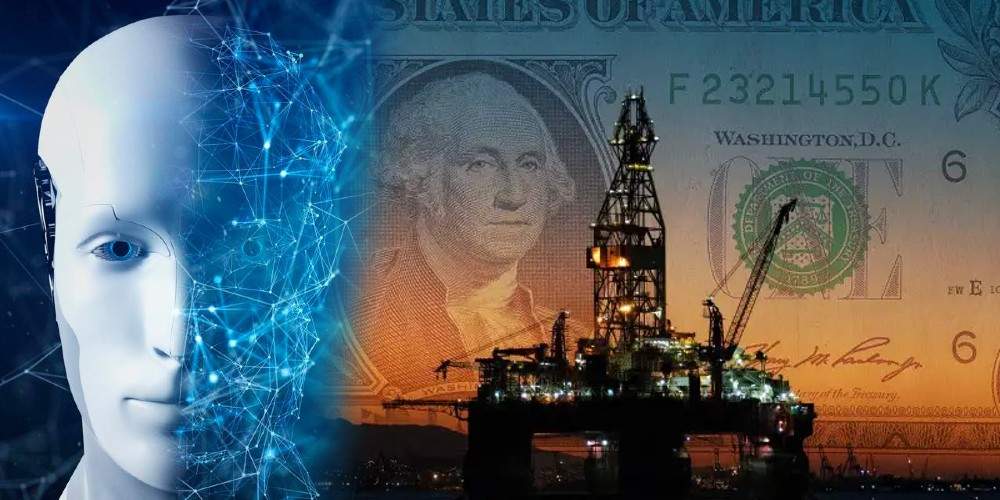For decades, the US dollar has been the dominant currency in the global oil trade, with most oil transactions being conducted in US dollars, a phenomenon known as the “petrodollar system”. The petrodollar system was established in the 1970s as a result of a agreement between the United States and Saudi Arabia, whereby the US would provide military protection for the oil-rich kingdom in exchange for Saudi Arabia’s agreement to price its oil exports in US dollars and to recycle its surplus oil revenues back into US assets.
However, in recent years, there has been a shift away from the petrodollar system as other countries and currencies have gained more prominence in the global oil trade. This shift can be attributed to several factors, including the rise of new oil-producing countries, the growing role of non-US currencies in international trade, and the declining role of the US dollar as the world’s dominant currency.
One of the major drivers of this shift is the growing economic power of countries like China and Russia, which have been actively seeking to reduce their dependence on the US dollar and increase their use of their own currencies in international trade. These countries have also been investing in infrastructure and making deals with other countries to facilitate the trade of oil in their own currencies, bypassing the US dollar.
Another factor contributing to the shift away from the petrodollar system is the increasing use of digital currencies and blockchain technology in international trade. These new technologies have the potential to greatly reduce the dependence on traditional currencies, such as the US dollar, in the global oil trade.
Despite these changes, the US dollar still remains the dominant currency in the global oil trade, and it is unlikely that it will lose its position as the primary currency in this market in the near future. However, the trend towards a more diversified global oil trade, with multiple currencies being used, is likely to continue.
In conclusion, the shift away from the petrodollar system is a reflection of the changing economic landscape, with new players and technologies emerging, and the increasing diversification of international trade. As the world moves towards a more multipolar economic order, it will be interesting to see how the role of the US dollar and other currencies evolves in the global oil trade.
This Article Written by ChatGPT
Editor’s Commentary: So, for those who may have noticed a shift in the tone of the article above compared to past articles I’ve posted regarding the petrodollar, it’s because this article was a trap. I wanted to see how many people could sniff out that this post was not written by a person. It was written by ChatGPT based on the query, “Write an article about the shift away from the petrodollar.”
I apologize for conning you, but until today I did not realize the sophistication and command of both language and context that this artificial intelligence engine possesses. It’s not a great article by any means, but it passes the smell test as a brief analysis of the current circumstance. It’s wrong on one note; the U.S. dollar DOES have a high chance of being usurped in the global oil trade in the near future. But outside of that, the article written by AI is practically indistinguishable from one written by a staff writer at a national publication.
This wakeup call (for me, at least) was prompted by an article I read and published about AI written in part by Frank Miele. I say “in part” because his was the first I’d ever read (as far as I know) that was written by ChatGPT. One can argue that if it’s able to improve just a bit, it could legitimately replace journalists. And it’s not just writers who should be concerned. AI’s ability to project life-like videos and “deep fake” representations of actual people means we could soon see the evening news written and reported completely by AI.
Again, I apologize for misleading you with the opening part of the article. It came as a shock to me and I felt it necessary to use the same element of surprise to hopefully wake others up to the dystopian future that may be in store for us if we don’t start pushing back now. Some may argue that it’s not that big of a deal, that artificial intelligence replacing some of our jobs will lead to better things for most. That’s the argument I’ve been hearing for a while and I don’t completely disagree… at first. But once we project how this all plays out, it becomes clear that continuing down this road could create a brand new existential threat against humanity. If there’s a 1% chance of it, I refuse to entertain the idea.
Survival Beef on sale now. Freeze dried Ribeye, NY Strip, and Premium beef cubes. Promo code “jdr” at checkout for 25% off! Prepper All-Naturals
I, for one, will not be welcoming our new artificial intelligence overlords.
What Would You Do If Pharmacies Couldn’t Provide You With Crucial Medications or Antibiotics?
The medication supply chain from China and India is more fragile than ever since Covid. The US is not equipped to handle our pharmaceutical needs. We’ve already seen shortages with antibiotics and other medications in recent months and pharmaceutical challenges are becoming more frequent today.
Our partners at Jase Medical offer a simple solution for Americans to be prepared in case things go south. Their “Jase Case” gives Americans emergency antibiotics they can store away while their “Jase Daily” offers a wide array of prescription drugs to treat the ailments most common to Americans.
They do this through a process that embraces medical freedom. Their secure online form allows board-certified physicians to prescribe the needed drugs. They are then delivered directly to the customer from their pharmacy network. The physicians are available to answer treatment related questions.


